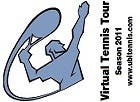01/06/2012 10:49 CEST - Clippings
Un'altra maratona per Isner, ma questa volta perde (The New York Times)
1 giugno 2012
PARIS — This time, it turned out differently after all that effort. This time, John Isner lost to an unseeded Frenchman at a Grand Slam tournament with the fifth-set score deep, though not nearly as deep, into double digits.
This time, with red clay underneath his feet instead of English grass and with an enthralled crowd cheering against him, it was Isner, the 6-foot-9 American, who cracked first. And when this second-round French Open match was well and truly over and Paul-Henri Mathieu had wept and felt the welcome sting of all those Gallic slaps on his back, he looked at his phone and realized that his close friend Nicolas Mahut was calling.
“He told me that he was proud of me,” Mathieu said. “And I told him I was happy to have gotten revenge for him.”
There will almost certainly never be another match as long as Isner’s ultramarathon victory over Mahut in the first round of Wimbledon in 2010. It lasted 11 hours 5 minutes and stretched over three days and plenty of false dawns before Isner won, 70-68, in the fifth set.
Mathieu’s 6-7 (2), 6-4, 6-4, 3-6, 18-16 victory on Thursday was little more than a movie trailer compared with that London epic. But at 5:41, Mathieu’s and Isner’s joint effort was still the second-longest match in French Open history in terms of elapsed time, behind Fabrice Santoro’s 6:33 victory over his French compatriot Arnaud Clément in 2004.
Santoro required two days to finish off Clément, 16-14, in the fifth set. Thursday’s classic came in a single serving, beginning in bright sunshine at 3:27 p.m. on Court Philippe Chatrier and ending in shadows at 9:08 p.m., when Isner’s weary topsin forehand bounced wide on Mathieu’s seventh match point.
Mathieu, 30, a wild card ranked 261st, thrust both arms into the air, brought his hands to his head and walked forward for a handshake that turned into a partial embrace.
Once France’s brightest prospect and ranked as high as No. 12 in 2008, Mathieu has had to fight back repeatedly from injuries, most recently from an arthritic left knee that required reconstructive surgery and kept him off tour for 15 months.
He first started hitting balls from a seated position, resumed light on-court training in August and returned to the tour in late January with no official ranking. When he won his first match in Montpellier, he cried on court.
But Montpellier is not Roland Garros to a French tennis player.
“When I was hurt, every day I fought and was thinking about being on this court here for a big match,” said Mathieu, who repeatedly teared up during interviews. “Even though I played all the Grand Slam tournaments on all the big courts, this is one of the most beautiful moments of my career, especially after my injury. I fought to live these moments again. Even if I would have lost, I would have spent an incredible day on the court.”
Isner, in defeat, could not say the same. “It’s more disappointing how I lost it,” he said. “For whatever, six hours, really not doing what I should be doing. I don’t know. I just couldn’t free myself up the whole match.”
It was also a challenging day for Andy Murray, the No. 4 seed from Britain, who was close to retiring because of back spasms after losing the first set of his match against the Finnish veteran Jarkko Nieminen.
Murray, at times unable to run or serve at close to full strength, gradually worked his way back, with plenty of help from the increasingly erratic Nieminen. Murray won, 1-6, 6-4, 6-1, 6-2, and said he intended to play his third-round match against Santiago Giraldo of Colombia.
It was quite a comeback, but not nearly the equal of Mathieu’s. Isner, the No. 10 seed and the last American male singles player standing, gave Mathieu ample credit. “My inability to change cost me the match,” Isner said. “But he was better.”
Mathieu was also, astonishingly, fresher, hunting down drop shots and maintaining a bounce in his stride until the end despite his lack of best-of-five-set match play in recent seasons.
He said that in the last two years he had not been able to practice for more than two and a half hours at a time because of his knee problem. After receiving a wild card into the French Open, he had other problems, fracturing a toe when he stubbed it on a bench four days before the tournament.
“I’ve had worse,” he said with a grin.
Mathieu has also had to recover from major on-court disappointments. In 2002, the year he became the last man to defeat Pete Sampras on tour, Mathieu had a breakthrough season and was asked to play his first Davis Cup match for France in the decisive fifth rubber of the final in Paris against Mikhail Youzhny of Russia. Just 20 years old, Mathieu ended up blowing a two-set lead to lose the match and the final for France.
That psychological blow, along with injuries, set him back. In 2006, he pushed Rafael Nadal to four sets in a nearly five-hour match in the French Open’s third round. But there have been few true Grand Slam highlights.
This victory required patience. Isner had 41 aces but never had a match point; Mathieu had six before converting. The first three came with Isner serving in the 22nd game. Isner saved two more in the 30th game and a sixth in the last game before he came up with a weak first serve by his standards that Mathieu returned on his way to winning the final exchange.
Isner said he never thought of the Mahut match in the fifth set, but Mathieu said he did. Not that Mahut gave him much help before this match.
“I asked Nicolas where Isner served on the break points, and he told me, ‘Everywhere,’ ” Mathieu said. “I said: ‘You’re kidding; you played 12, 15 hours. There has to be a place he serves more frequently.’ And he said, ‘No.’ ”
It is now indisputable that Isner is a magnet for drama and marathons. His ballistic serve means he is devilishly difficult to break, and his often shaky return game means it can be just as tough for him to break his opponents. He has now had long or phenomenally long five-set matches at all four Grand Slam tournaments.
But he had hopes of being a stronger contender in Paris this year after playing brilliantly and aggressively on European clay in the Davis Cup, upsetting Roger Federer indoors in Switzerland in February and then the Frenchmen Jo-Wilfried Tsonga and Gilles Simon in Monte Carlo in April.
But this European swing has been much more tentative. Perhaps Isner benefited in the Davis Cup from the tactical reminders he received from the team captain, Jim Courier, on changeovers, something not allowed in individual men’s tournaments.
“I’ve just been getting too frustrated in general,” Isner said. “You come over here, and you want to do well, and you don’t do that well, so you have long days. I just let it, this whole trip, get to me. It’s the absolute wrong thing to do. It’s very bad on my part.”
But Isner’s disappointment was not what lingered after this latest match for the history books. What lingered was Mathieu’s understandable delight.







